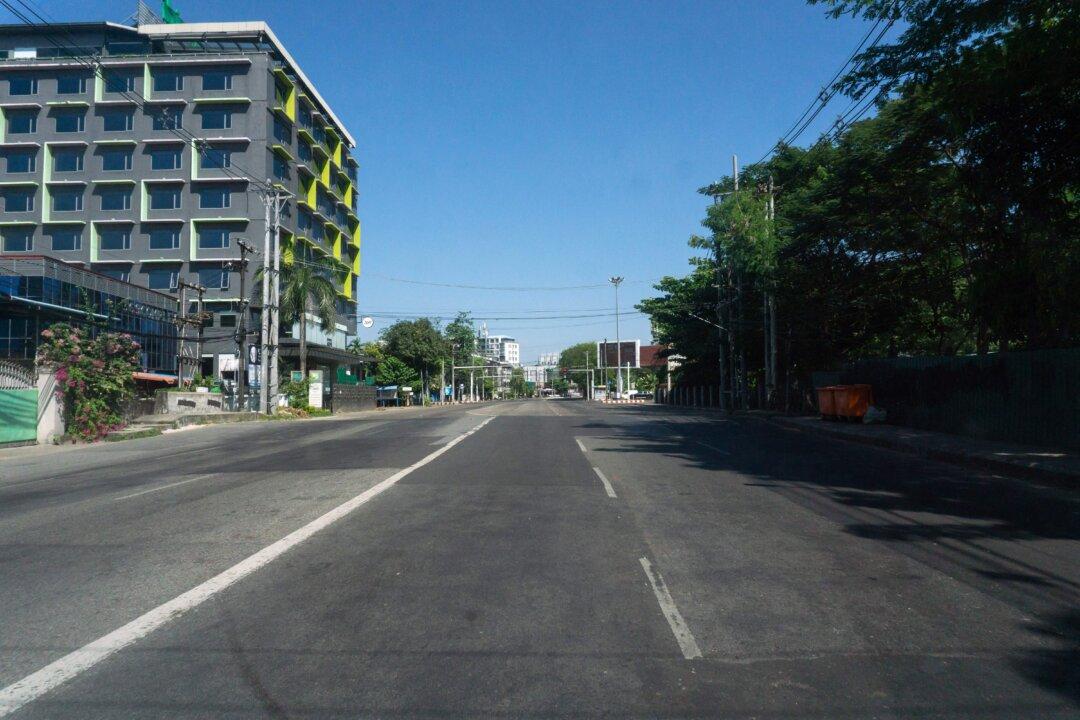Burma, also known as Myanmar, braced for empty streets on International Human Rights Day as protesters staged nationwide “silent strikes” in defiance of the military regime that ousted elected leader Aung San Suu Kyi in a February coup.
Photos on social media showed the streets of Yangon, a densely populated city usually crowded with public transportation, deserted on Friday, with all shops shuttered and no traffic. The nationwide silent strikes also brought the city of Mandalay to a standstill.





